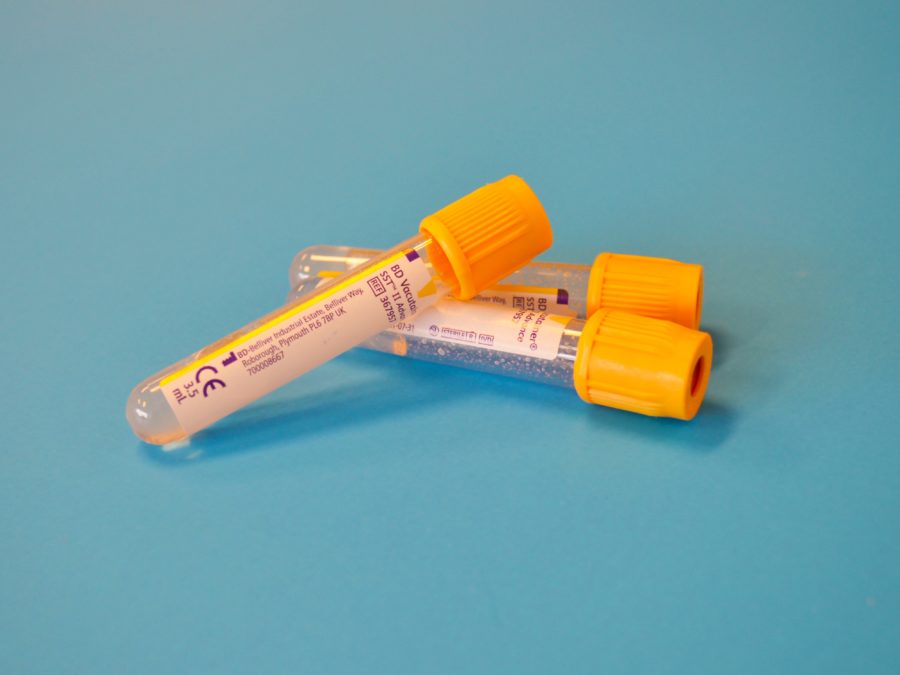Could our blood be the key to identifying the biological markers that predict dementia before its onset? PhD student Kanika Mehta explores the possibilities.
Dementia – it’s a frighteningly common disorder with no known cure, and is the second leading cause of death in Australia [1].
According to one study, over a lifetime, 1 in every 3 women and 1 in every 5 men risk developing dementia [2]. This neurological disorder often leads to rapid cognitive decline and memory loss, and at present affects some 50 million people worldwide [3]– many of whom will not even be able to tell the year they are living in.
If you were asked what year and month we are in right now, you would probably answer within a matter of seconds, but your biological markers – that is, the changes that occur in your body before cognitive symptoms appear – may tell a different story.
A pathway to early detection
Several studies have shown that early biochemical changes can start in the body for quite some time prior to the appearance of diagnosable symptoms. This stage, known as the preclinical phase, can range from anywhere between 10 to 30 years [4].
The good news is if we can identify what biochemical changes are happening inside our cells in this preclinical/asymptomatic stage, it might help us detect dementia before irreversible brain damage has occurred – and we could do this with a simple blood test.
By using the blood to look for biological markers (or biomarkers) associated with the preclinical phase, we can screen high-risk populations to identify individuals at risk of developing dementia, while also shedding light on the underlying molecular mechanisms of the disorder.
This would provide us with an opportunity to make lifestyle or medicine-based interventions that could delay (or even prevent) the future incidence of this disorder.
It’s in the blood
The focus of my PhD project is to identify protein biomarkers associated with poor cognition in the blood samples of healthy ageing Geelong participants, who have all been recruited as a part of the Geelong Osteoporosis Study (GOS).
The preliminary results are promising, and have revealed a panel of blood proteins that show association with cognitive function.
However, as useful as biomarkers are for indicating underlying health conditions, they alone don’t always complete the picture. There are several modifiable and non-modifiable risk factors associated with dementia [5], such as depression and osteoporosis/low bone mineral density (BMD).
With this in mind, I have also looked at whether the presence of these health conditions has an effect on the relationship between biomarker levels and poor cognition. This is important as it may help us identify high-risk individuals for pre-emptive screening.
These biomarker studies come with their own set of challenges, such as the challenge of reproducibility. Before a biomarker can be used in routine diagnostics, it needs to be validated across different populations to ensure high accuracy and reliability.
Moreover, follow-up studies are required to see if the biomarkers that can identify poor cognition in the preclinical phase can also predict long-term cognitive change.
It would be interesting to see how such biomarkers perform with regard to the prediction of future dementia onset.
Like most chronic conditions, dementia often develops due to a complex interplay among several factors including age, genetics, lifestyle, comorbid health conditions, etc. and it is important to account for these risk factors in biomarker studies.
If done right, biomarkers will be indispensable to the clinical world, and provide a better chance at early detection for future dementia patients.
Curious? Check out Deakin’s research into population health.
Kanika Mehta is a PhD student in the Institute for Mental and Physical Health and Clinical Translation, School of Medicine at Deakin University.
References:
1. Australian Bureau of Statistics. 2020: Retrieved from: https://www.abs.gov.au/statistics/health/causes-death/causes-death-australia/latest-release.
2. Licher S, Darweesh SKL, Wolters FJ, Fani L, Heshmatollah A, Mutlu U, et al. Lifetime risk of common neurological diseases in the elderly population. J Neurol Neurosurg Psychiatry. 2019;90(2):148-56.
3. Livingston G, Huntley J, Sommerlad A, Ames D, Ballard C, Banerjee S, et al. Dementia prevention, intervention, and care: 2020 report of the Lancet Commission. Lancet. 2020;396(10248):413-46.
4. Villemagne VL, Burnham S, Bourgeat P, Brown B, Ellis KA, Salvado O, et al. Amyloid beta deposition, neurodegeneration, and cognitive decline in sporadic Alzheimer’s disease: a prospective cohort study. Lancet Neurol. 2013;12(4):357-67.
5. Sosa-Ortiz AL, Acosta-Castillo I, Prince MJ. Epidemiology of Dementias and Alzheimer’s Disease. Arch Med Res. 2012;43(8):600-8.




